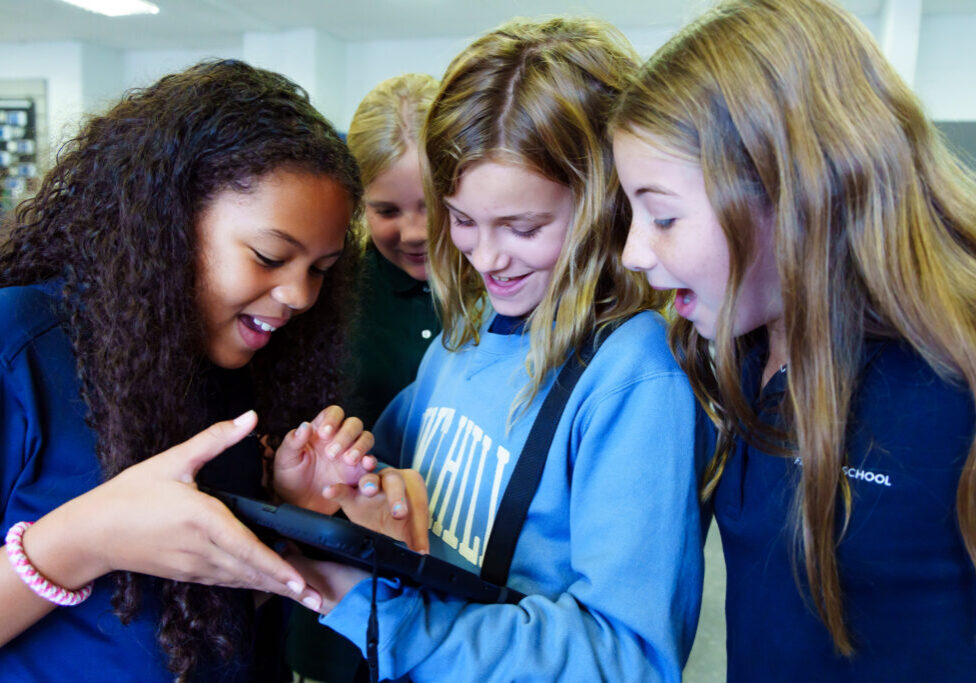Home | Admission Blogs | Admission |
If you’re reading this, you’ve already filled out a few forms, compared calendars, and circled an upcoming date on the family calendar: the private school visit. Maybe it’s a play visit for a kindergartener, a shadow day for a middle schooler, or an interview for an older student.
For many parents, this visit feels like a big moment — a chance for the school to get to know your child, and for your child to make a great impression. It’s completely natural to want to prepare them for success.
But here’s the twist: The best way to prepare your child for a private school visit is not to prepare them at all.
Why ‘Prepping’ Doesn’t Help (And Can Actually Hurt)
When parents try to “prep” for a visit — by rehearsing answers, coaching behavior, or explaining how to “act” — it almost always comes from love and good intentions. You want your child to feel confident and do well.
But in practice, this kind of preparation can increase anxiety and pressure, not confidence. Children quickly pick up on the tone that something important is at stake. Even young children can sense when a situation feels like a test. Suddenly, what should be a natural, engaging experience feels like a performance — and that can make them more nervous, less spontaneous, and less authentically themselves.
Ironically, over-preparing can hide the very qualities that make your child special: curiosity, humor, creativity, and sincerity.
What Schools Are Really Looking For
Here’s something many families don’t realize: When admission teams meet your child, they aren’t evaluating perfection. They’re looking for fit and an authentic connection. We want to see your child as they truly are: talkative, shy, thoughtful, silly, or curious. All of it helps us understand how they’ll engage, learn, and thrive in our community.
We don’t expect perfect answers, poised handshakes, or rehearsed stories. We’re looking for genuine engagement, natural curiosity, and a glimpse into who your child is on a day-to-day basis.
And if a school is truly the right fit, it will appreciate your child for exactly who they are — not a version of who they think they’re supposed to be.
How to Talk to Your Child About the Visit
The way you frame the experience matters more than anything you could “train” them to say.
For younger children: Keep it simple and light. Say something like, “You’re going to visit a new school and play with some teachers and kids.” Young children don’t need to know this is part of an application. They need to know that it’s a fun visit to explore and meet new friends.
For older students: If your child knows this is part of a school search, be honest and empowering. You might say, “You’re going to see what the school is like and whether it feels like a good fit for you.” This approach invites curiosity and confidence without pressure.
For teens and interview-based visits: Encourage them to ask their own questions about the school rather than focusing on what they think they should say. Authenticity always leaves the best impression.
What to Do Instead of ‘Prepping’
You don’t need flashcards or practice questions. Focus on calm reassurance and consistency.
- Keep routines steady. A normal bedtime, breakfast, and morning rhythm help children feel grounded.
- Normalize the experience. Let them know it’s simply a chance for everyone to get to know each other.
- Model calm curiosity. If you’re relaxed and upbeat, your child will mirror that energy.
- Focus on the opportunity, not the outcome. Whether it’s a play visit or a formal interview, remind your child that just showing up and being themselves is enough.
Trust the Process — And Your Child
Every visit, from preschool playdates to upper-school interviews, is an opportunity for discovery — for your child and for the school. The goal isn’t perfection; it’s connection.
When your child feels free to be themselves — to laugh, ask questions, and show curiosity — they reveal the qualities that make them who they are.
So, resist the urge to prepare. Trust their authentic voice, their natural energy, and their unique perspective. If the school truly deserves your child, they’ll see that too.
Jennifer Webb is the Director of Enrollment Management and Financial Aid at Flint Hill School, drawing on 16+ years of experience to expertly guide and counsel prospective families through the entire admission and financial aid process, ensuring every family feels well-informed, supported, and at ease throughout their journey.
Posted in:





